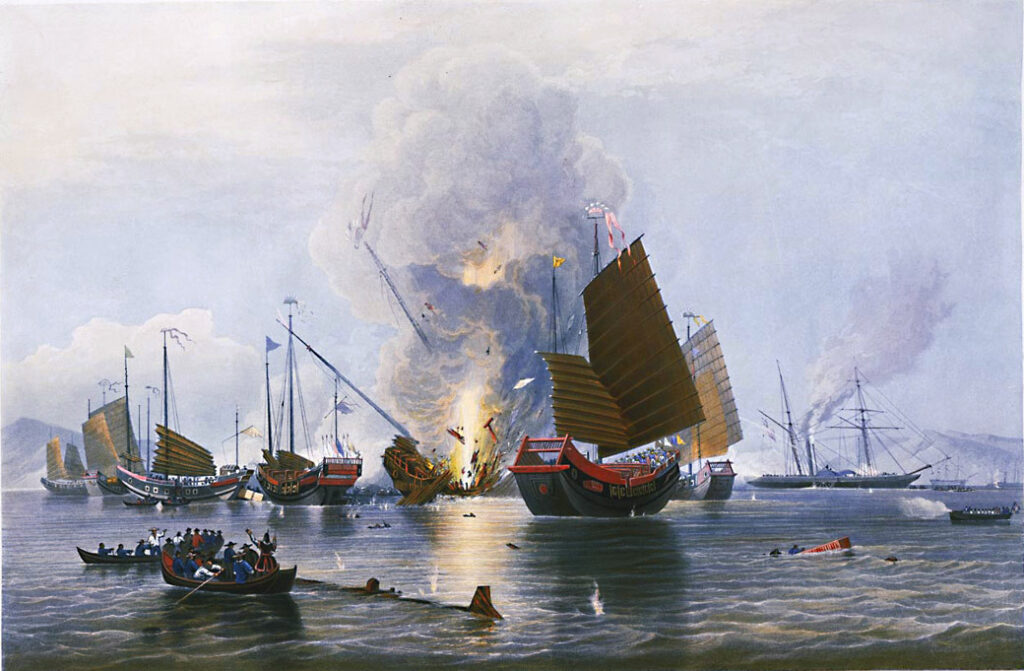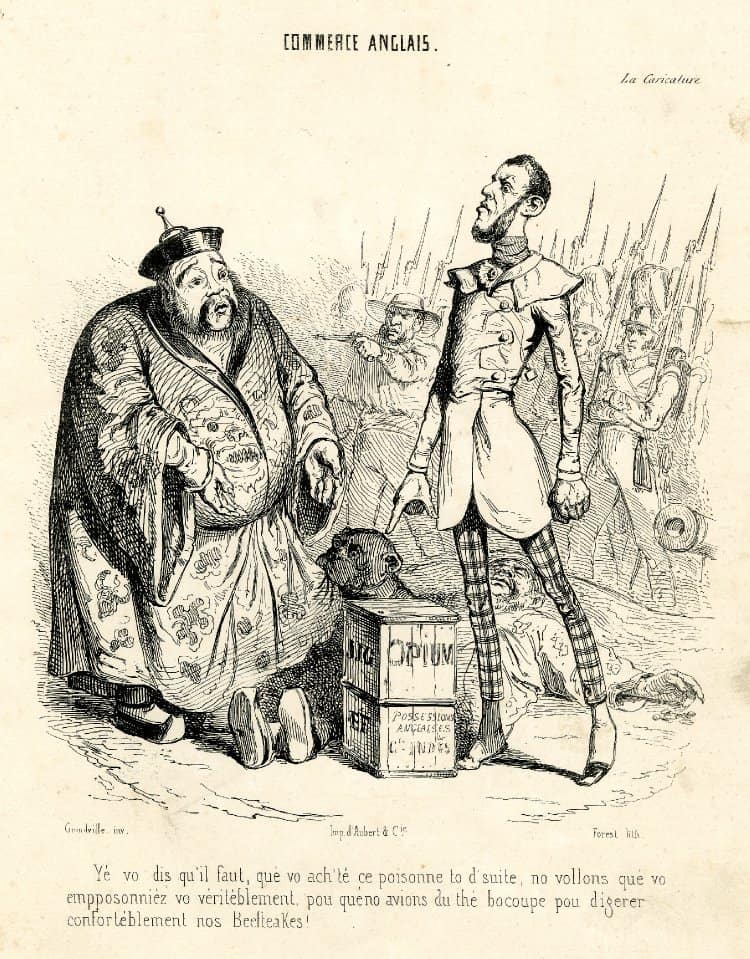Richard Mellor from the USA shares some thoughts on the Opium Wars of 1839-42
History is sort of important stuff: the history of anything, music, art, peoples, countries and the relationship between them.
I have a fairly good head for dates; they stick in my mind. And this was useful at school as I could appear intelligent by getting my hand up first when the class was asked when the Battle of Trafalgar was. This could win me a merit as opposed to a demerit which, if one had enough, could get one a public caning in front of the assembly. I desperately wanted to win that one but never made it. Surely, the bad girls would be impressed if I got a public caning!
One date that sticks in my mind to this day was the Treaty of Nanking, signed in 1842 between the British and Chinese, that ended what we know as the Opium War. It was actually the end of the first Opium War which lasted from 1839 to 1842. The second Opium War took place from 1856 to 1860.
For some strange reason, back then, some 55 years ago, I thought the British were trying to stop the use of this drug by the Chinese; after all, it’s a terribly addictive drug. Sometime later, I discovered that the Chinese were actually trying to stop the British from importing the drug into China! A whole series of treaties that opened Chinese ports to British commerce resulted from these defeats.

British drug-dealing
So, it was more than just the Chinese opposition to British drug-dealing in the country. The British and other European colonial powers were not simply driven by racial animus or a hatred of foreigners, but capitalism was close to gaining full political sway in Britain, at the door of the industrial revolution and the repeal of the corn laws, and new markets had to be found. The Opium Wars were about opening Chinese ports to Western, in particular British, capitalism for imports on the one hand and the plundering of China’s resources for export on the other. Opium was a major import. A great source for how great it was is found in Marx’s many comments on colonialism.
The Treaty of Nanking, resulted in Hong Kong being ceded to Britain in perpetuity and another five ports opened to British trade. Oh, how history changes things.
The British penetration in China included what was called Extra-Territorial Rights, something I learned about in later years, that meant British law was the only law in these areas. A British person could kill a Chinese person in their own country and could only be tried by a British court and legal system. This is similar to the treatment of Black people and indigenous people in the US.
Humiliating defeat
This history, this humiliating defeat of Chinese sovereignty by an invading colonial power is, from what I understand, embedded deep in the Chinese mass consciousness and a low point in their history. I should add here that British capitalism made the Chinese pay reparations for the trade lost due to their refusal to capitulate to the invaders!
Given this, my fellow workers here in the US [and the UK – LH], what should we make of the present situation where the spy agencies of the two countries that have between them controlled, occupied, bombed and plundered the rest of the world are now attacking the Chinese for being unfair, cheaters, trying to dominate the world economically and, even worse, being a threat to “our” values!
The heads of the FBI and Britain’s MI5 have, like two rotten peas in a pod, come out, publicly and in unison, to condemn China for trying to “dominate” the markets dominated at this point by the US. The Chinese want to “dominate your market” warn British and US capitalists – these two representatives of Wall Street, that even spy on workers’ organizations in their own countries! China poses a “…systematic challenge” to “the US economy and government” the Wall Street Journal reports, adding that it’s the “rivalry for global influence” that is at the heart of it. (WSJ 7-7-22).

As workers, we have to see the big picture. For example, all the talk in the western press about the “international community” has to be questioned. Much of the real international community are nations and regions that have nothing but hatred an anger at the role the US and the European colonial powers have played in the world. This phrase is just a deceptive way of referring to the shared interests of the leading capitalist powers.
Class perspective
Every political question, every economic decision we are faced with, has to be looked at from a class perspective. Does the position we take advance the interests of our class? Is the history of western colonial powers in China not significant? Might familiarizing ourselves with this history not help us understand how we arrived where we are today?
This is made more complex in the US where the idea of class and working-class history has been subverted. We have to reclaim this concept – that we are a class unto ourselves with our own distinct economic interest and that this transcends borders. Whenever the propaganda of big business tries to win us to their side, claiming we are threatened by this or that group of people, we must reflect on what we are, and ask ourselves “What would I do in that situation?”
China is a threat to US and world capitalism. We don’t have to support the Chinese ruling elite – they call themselves communists, but they are not. The Chinese workers are our allies and, as Dire Straits put it, our “Brothers (and sisters!) in Arms.” We need them to set things straight.
This is an edited version of an article on the US socialist website, Facts for Working People. The original can be found here.



